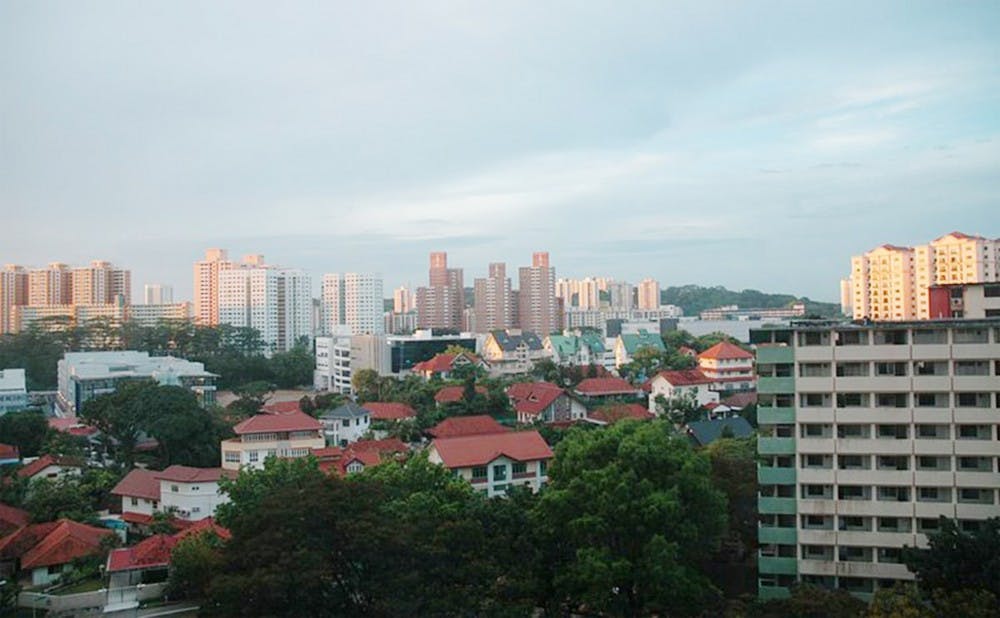On the heels of a new funding agreement last June, the Duke-National University of Singapore Medical School is continuing to explore an innovative medical curriculum.
Founded in 2005, the Duke-NUS student body is comprised of mostly Singaporeans but also includes students from China, India, Malaysia, South Korea and the United States. As Singaporeans themselves come from different ethnic and socioeconomic backgrounds, managing such diversity is part of the Duke-NUS medical training.
“Having different life experiences and academic backgrounds is critical for Singapore, which has sought to diversify its physician pool and reflect the diversity in patients,” said Robert Kamei, associate provost for education at the National University of Singapore and former vice dean of education at Duke-NUS.
Sandy Cook, interim vice dean of education at Duke-NUS, added that diversity gives the school an advantage moving forward. One primary focus of Duke-NUS is to better equip students with the ability to apply content knowledge in a practical setting, said Scott Compton, associate dean of medical education, research and evaluation.
This allows students “to recognize and react to cultural and language issues that may not exist in a more homogeneous environment," he explained.
The curriculum draws from various aspects of its partner institutions. Unlike other medical schools in Singapore following the British undergraduate medical curriculum, Duke-NUS models Duke’s graduate-entry and research-oriented medical curriculum. The collaboration taps into the resources of NUS as well as funding from the government of Singapore, and graduates of the program are awarded a joint Duke and NUS degree.
After graduating from the MD program or the MD-PhD program, students are required to also complete a service commitment in a Singaporean public hospital or institution, lasting four years for Singapore citizens and five years for international students and permanent residents of Singapore.
Kamei and Cook initially spearheaded the school’s education programs and introduced its team-based learning platform, TeamLEAD. The platform incorporates the "flipped classroom" instructional model, where students come into the classroom already prepared so that class activity is centered on group work and grappling with challenging questions.
TeamLEAD was a “radical departure” from the norm in medical education, Kamei said. The model's success has since garnered the attention of local institutions and over 200 international delegations, including Duke's own School of Medicine.
Faculty exchanges between Duke and Duke-NUS are frequent for both education and research, Cook noted. For example, some faculty members from both Duke and Duke-NUS have research labs in both institutions.
Patrick Casey, senior vice dean of research at Duke-NUS, added that he ran a lab at each location when he first arrived in 2005. Since 2012, Casey said he has focused all research at Duke-NUS.
“We have brought both the first-year faculty and clerkship faculty from Duke here and from Duke-NUS to Durham to meet one another, share experiences and learn from one another,” Cook said.
Duke-NUS works closely with SingHealth—Singapore’s major healthcare provider—on research, education and clinical care. The school’s proximity to SingHealth’s Singapore General Hospital, for example, provides strategic advantages and opportunities for Duke-NUS to engage with the broader Singaporean health landscape.
Since its establishment, the Duke-NUS collaboration has achieved significant academic milestones and clinical performance requirements. Kamei also said its emphasis on research is paying off.
Medical research specific to a population is important, as diseases often manifest themselves differently depending on location. Duke-NUS scientists discovered in July 2015 an antibody that can kill all strains of DENV-2, a dengue serotype—a variation of a bacteria and virus species often found in Singapore.
In April, a team of Duke-NUS scientists published a breakthrough in understanding the structure and behavior of the Zika virus, which has hit Singapore as it has other countries.
Approximately 260 students have graduated from Duke-NUS, said Thomas Coffman, dean of Duke-NUS. Although the school is still very new, stakeholders are looking forward to seeing its graduates exert their influence on Singapore and the world.
“I am confident that they have the talent and training to transform medicine and improve patients’ lives,” Coffman said.
Get The Chronicle straight to your inbox
Signup for our weekly newsletter. Cancel at any time.

